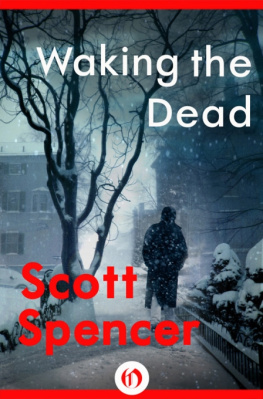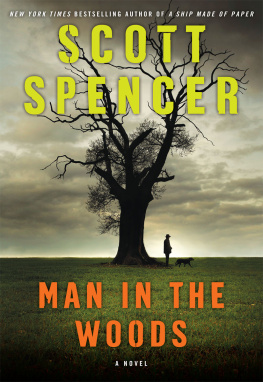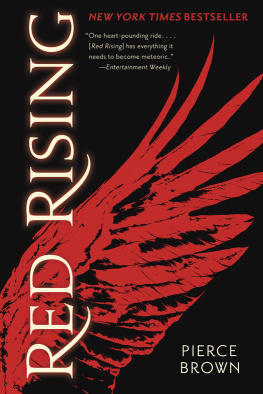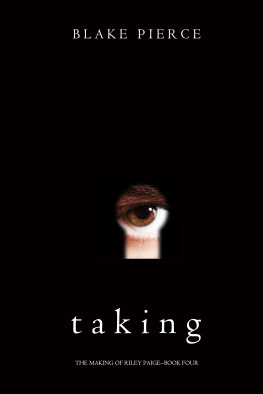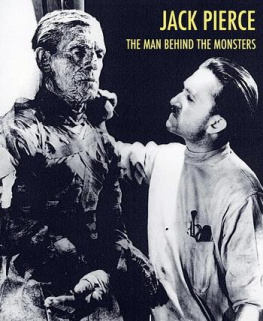Waking The Dead
Scott Spencer

This book is dedicated to Celeste and Asher.
But some man will say, How are the dead raised up and with what body do they come?
I CORINTHIANS
Contents
S ARAH WILLIAMS LEFT for Minneapolis with our life together in the worst possible repair. I knew enough about the suddenness of things to know that you ought never say good-bye to someone you love without acknowledging that you might be looking at them for the very last time. I broke this emotional law and twenty-six hours later Sarah was pronounced dead and zippered up in a black rubber bag in Minneapolis Community General Hospital.
The police informed Sarahs family down in New Orleans but the Williamses didnt have the decency or perhaps the presence of mind to find me. I finally learned about it on the CBS news that evening, as I sat in our apartment in Chicago, surrounded by the things Sarah and I had accumulated over the three years of living together. The picture that flashed on the TV screen was of Francisco and Gisela Higgins, who had left Chile when the generals took over the government and who had been making the rounds internationally, describing the horrors of the current Chilean regime. As it happened, Sarah had been driving Francisco and Gisela to a church in St. Paul where the parish had given sanctuary to a few Chileans who had fled to the United States illegally. They were in a white 1968 Volvo station wagon, with an indestructible KEEP ON TRUCKIN bumper sticker in the backsix years hadnt peeled it off, nor had six hundred days of winter in the northern tier, nor, finally, had the blast of the bomb that had been taped to the bottom of the car and radio-detonated when they were just a block from Our Lady of the Miracle. But for me the details came later. I knew something whose terribleness was beyond anything Id ever known happened as soon as I saw Francisco and Giselas faces on the screen and the news reader said, This afternoon, terror struck a quiet neighborhood in Minneapolis. And then Francisco and Giselas images were gone and the newscaster went on talking and there was film running. I saw the white Volvo covered in firemens foam, bare trees, a light April snow falling, and then a reporter standing on the street with a microphone, looking very official and indignant, a big blond boy with a movie star haircut and a fancy winter coat with a fur collar. But my hands were over my ears and I couldnt hear what he was saying. And then there was a picture of Sarah. The same old picture I had seen on her parents piano in their house on St. Charles Avenue, a picture of her sitting on a wicker chair on their porch with her arms around her knees and a completely happy smile on her face which was rarely that completely happy. The sunlight was in her hair, shining also in the whites of her eyes, the moisture of her teeth, the little gold chain around her neck. My own voice was echoing as I said no over and over and then I hit the Off switch.
I left the apartment without closing the door behind me and without a coat. The late snow that had been falling in Minnesota was now falling through the coarse gray darkness over Chicago. Somehow I seized on the idea that there was something I needed to decide, a course of action I needed to affirm. I dont honestly know what I was thinking; the truth is most of my effort was probably spent fighting going mad.
We were living on 51st and Blackstone. I was going to law school at the University of Chicago and Sarah was working on the northwest side in a place called Resurrection House. We had few friends and virtually no money, so most of the time we had to spend together we spent alone, in the apartment.
I was still strange to the streets I walked that night. The lights in the windows seemed sharp and unfriendly and the families living on the ground floors, whose domesticity I could spy in brightly lit wedges, seemed remote, unknowable. From time to time, I became aware of how cold it was. I looked up and saw the snow drifting past the streetlights. Sometimes my heart seemed not to be beating at all and sometimes it seemed to be beating far, far too quickly. I made my way to 53rd Street and found a bar. I had a few dollars in my pocket and I ordered a beer. I was supposed to be stopping drinking and it didnt quite occur to me that this was a time I could back off that vow. The taste of the beer was too real and its reality made the night undeniable.
The bartender had a large white distorted face, unbelievably grotesque, like something underwater. There was one other person in the bar, a bus driver sitting in front of what looked like a Scotch and soda. There were framed photographs of famous boxers on the wall that listless automatic decoration they use in bars without any real character. I had some change in my pocket and I went to the phone booth. I was wet, shaking. I dropped the dime in and dialed our apartment and listened to the ringing. And with each ring I thought: My God, it really happened.
SARAH AND GISELA and been in the front seat and they were instantly dead. Probably they were each buried with shreds of the other in the casket. Francisco Higgins had been in the backseat, lying down. They took what was left of him to the hospital, where he died two days later. By this time, I was in Minneapolis, too, and I visited his hospital room. He was small in that bed; the equipment was larger than he was. It was a cheerful room. Nordic and up-to-date, with little humanizing touches that were coming into vogue: warm colors on the wall, a childs crayon drawing framed, an orthopedically designed chair for visits.
I really didnt know Higgins. Id met him only once, at dinner with Sarah and a few of the others the night before the trip to Minnesota. Id liked him that evening. He was a sort of Chilean government-in-exile, but he had a way of not taking it so awfully seriously, or at least not rubbing your nose in the seriousness of it. Id liked him then but I did not like him in that hospital room, and as soon as I walked in I realized it was wrong for me to be there. I started to shake and I was having vile, desperate thoughts, my mind jerking this way and that like a snake tortured by a sharp stick. He had clearly been the object of the attack; his wife was a secondary target and Sarah had just happened to be along for the ride. Hed been deliberately attacked, but, in a sense, Sarahs death had been accidental. It seemed inarguable from the beginning that the bomb had been planted by terrorists in the pay of the generals running Chilethe generals whod held Francisco and Gisela prisoner and who, having succumbed to international pressure to set them free, wanted them silenced. But the last thing they wanted to do was kill an American citizen. Francisco and Gisela were world famous, but it was Sarahs death that became the focus of the stories about the bombing, Sarahs death that made people in America care. And soon Franciscos friends the world over would be making the most of it. They were going to take her away from me and make her stand for something.
Sarahs father was in Minneapolis to accompany the casket on the flight down to New Orleans, where she was going to be buried in the family tombburials are above-ground in New Orleans because the loam is too soft to hold the dead securely in their pine and mahogany cocoons. He spoke to the police and avoided the press. He thought the reporters were somehow conspiring with the dissident Chileans to use Sarahs death to disgrace America. He was a large, aggressive man, fit from tennis and the isometrics of his own bad temper, and he came into the cold Minnesota spring wearing a light blue suit, a white belt, and white shoes, as if these were the tribal colors of his better way of life.
Next page
